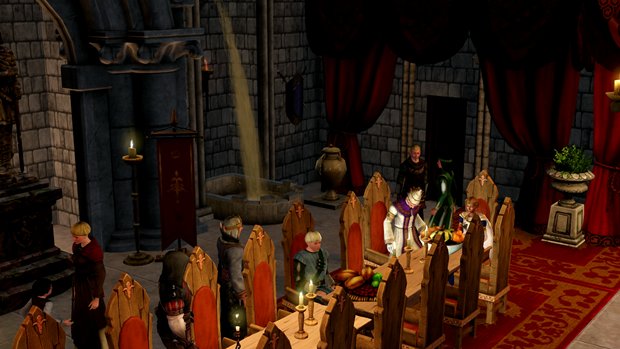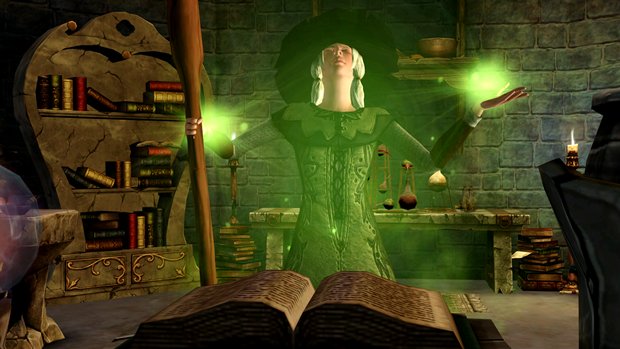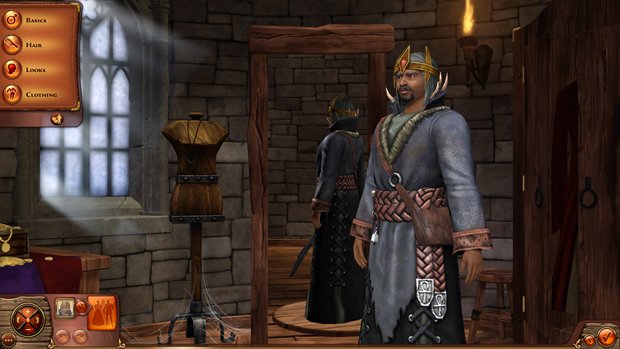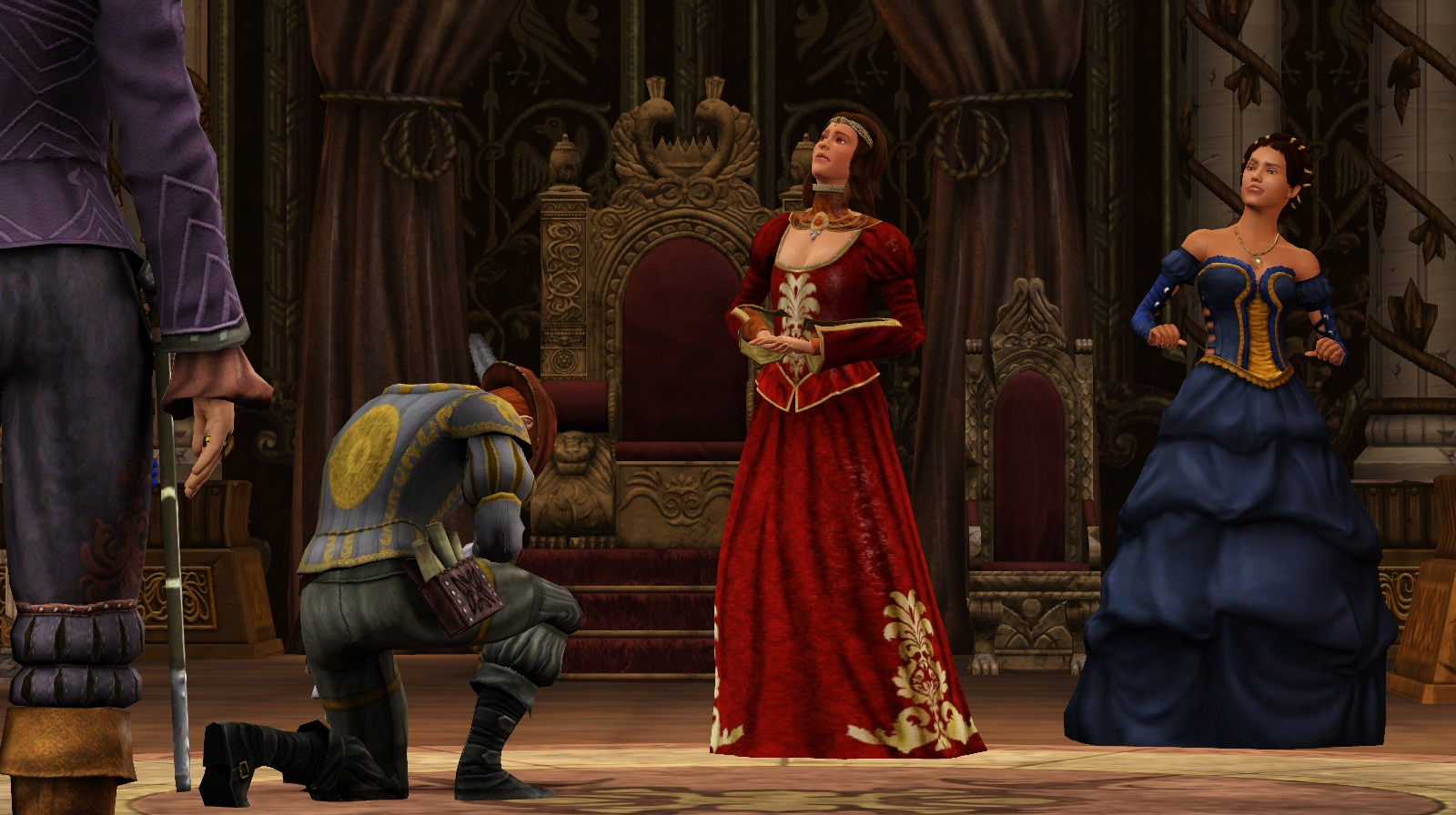GamesRadar+ Verdict
Pros
- +
Fresh
- +
purpose-driven gameplay
- +
Fun fantasy setting
- +
That it's not a re-skinned Sims 3
Cons
- -
Not building castles
- -
The lack of freedom
- -
That it's not a re-skinned Sims 3
Why you can trust GamesRadar+
With how much EA is known for whoring out its Sims franchise with expansion packs and re-releases, it wouldn’t be a stretch to assume The Sims Medieval is just The Sims 3: Castles Edition. But if you make that assumption, you’re going to miss out on a game that’s surprisingly different in a lot of ways.
The Sims Medieval is more about going on quests and bettering your kingdom than it is about making families and living out their lives, day in and day out. In that sense, The Sims Medieval adds what many gamers thought was always missing from the franchise: structure and purpose. However, it comes at the cost of some of the freedom that many would say makes The Sims, well, The Sims.
After Patrick Stewart introduces you to the game’s fantasy setting as only Patrick Stewart can, you select a Kingdom Ambition. This is essentially the overarching goal you’ll be working toward as you play. To start, you only have a very basic Ambition to choose from – placing buildings – but as you complete kingdom playthroughs you’ll unlock new goals, such as making your kingdom as financially successful as you can. You’ll then make a Sim – just one. This will be your first hero, which in a way is like a party member in any RPG. You choose a hero to fulfill certain professions as you play, such as a blacksmith, a wizard or a bard. To start with, your first hero is your monarch, ruler of your new kingdom.

Upon first glance, The Sims Medieval seems very much like The Sims 3. Creating a Sim is almost exactly the same, as is the basic UI at the bottom of the screen. But look a little closer and you’ll start to see some big changes. For example, rather than requiring the player to keep track of a million and one needs for your Sim – from keeping them clean to making sure they don’t cry themselves to sleep every night – The Sims Medieval only makes you keep track of how tired or how hungry your hero Sim is, which is a gigantic relief considering everything else you need to accomplish.
You do need to worry about “focus” though, which is a new stat that determines how well your Sim can perform on the task at hand. Things like being tired, injured or lonely may lead to an unfocused Sim who’s more inclined to make mistakes and perform actions slowly, while buffs from eating a good meal, being blessed or getting their first kiss will make a Sim feel like he or she is ready to conquer the world.

You’ll also notice pretty quickly that you don’t have nearly as much control over the camera. You are more or less locked into a position of viewing a building – be it your castle or a tavern – from straight on, like a simple dollhouse with the front wall taken away. At first, this seems like a big and somewhat bizarre step back in terms of player freedom, but in all honesty this view lets you see everything you need when playing the game.
The game progresses through the choosing and completing of quests. You’ll be able to choose from different quests at different times, and they all play differently depending on which hero (or group of heroes) you choose as the main character of said quest. For example, a quest your monarch hero undertakes may involve a lot of diplomacy and talking to other characters, letting you make choices about how to treat neighboring kingdoms or citizens of your own kingdom. The blacksmith, on the other hand, is more likely to be tasked with the production of armor and weapons, or the mining of resources.

When choosing which quests to go on and which characters to tackle them, you have to keep in mind what each choice will do to the health and happiness of your kingdom. There are stats to track for things like the kingdom’s security, culture and well-being, all of which you want to balance in order to keep your people happy. While on quests, you can only control the characters that are active as “primary” and “secondary” heroes. This brings a lot of focus to the gameplay, as you’re often only controlling one or two Sims at a time (though the others are definitely still there and available for interaction), but limits a lot of the sandbox nature you find in previous Sims titles.
More info
| Genre | Simulation |
| Description | The Sims Medieval adds a fresh coat of paint and purpose to a stale franchise, making it fresh and exciting again. But the added structure and story come at the cost of unlimited sandbox freedom, which may turn old fans away while bringing new fans in. |
| Franchise name | The Sims |
| UK franchise name | The Sims |
| Platform | "PC" |
| US censor rating | "Teen" |
| UK censor rating | "12+" |
| Release date | 1 January 1970 (US), 1 January 1970 (UK) |



